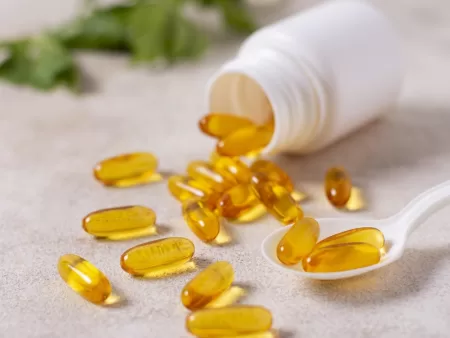
Did you know that the key to your general well-being and energy may lie in a little hormone in your body? Much more important than its total testosterone equivalent, “free testosterone” affects your mood, energy level, and physical health in addition to your sexual health.
Free Testosterone
A distinct component (a different kind) of normal testosterone is called free testosterone. This hormone is constantly prepared to start acting in the right way.Even though it only accounts for 2-3% of all hormones, it is an essential part of the body. The distinction with free testosterone is that it is not tethered to our body’s proteins. This means it can move freely and help your body when needed.
If its level is low, you may feel tired and lose interest in things that might have interested you before. Its high level is also not a good indicator; it is always important to have a balance. This small part of your hormones plays a big role in how you feel every day. This affects your energy, mood and overall well-being. It is a small but vital part of your body that helps you feel good. Because it gives your body immediate benefits—like keeping your muscles strong and boosting your mood and energy—free testosterone is crucial.
Health Implications of Imbalances
Having the right balance of free testosterone in our bodies is really important for our health. When the levels are not right, it can cause different health problems. Let’s talk about what happens when there’s too little or too much of this hormone in our bodies.
Men
In men, if there’s not enough free testosterone, it can lead to several issues. They might feel extremely tired all the time, which we call fatigue. There could be a decrease in their interest in sexual activities, known as low libido. Problems with getting or keeping an erection, known as erectile dysfunction, can also occur. Another problem is losing muscle strength and muscle mass, making it harder for men to maintain their muscle condition.
Women
For women, too much free testosterone can cause troubles as well. This is often seen in a condition called polycystic ovary syndrome (PCOS). Women with PCOS can experience irregular menstrual cycles, which means their periods can be unpredictable. It can also make getting pregnant more difficult, a condition known as infertility. PCOS can lead to weight gain, skin issues like acne, and increase the risk of more serious health problems, including diabetes.
But it’s not just about physical health. These imbalances can also affect how people feel mentally and emotionally. Men with low testosterone might experience lower self-confidence and increased stress. Women with PCOS often face emotional distress because of their symptoms, impacting their everyday life.
So, it’s important to keep an eye on free testosterone levels. If someone suspects they have an imbalance, they should talk to a doctor. Doctors can check these hormone levels and suggest ways to fix the imbalance. This might include medication, changes in diet, or specific exercises.
Having balanced free testosterone levels is key for good health. They affect not only our physical condition but also our mental and emotional well-being. Monitoring these levels and managing any imbalances is crucial for a healthy and happy life.
Symptoms to Understand Testosterone Levels
Wondering about your testosterone levels? Before heading to the doctor, it can be helpful to check if you have any symptoms that might suggest they’re too low or too high. Remember, this doesn’t replace professional medical advice, but it can give you an idea of what to look out for.
Symptoms of Low Testosterone Levels
- Fatigue: Feeling unusually tired all the time, even when you’ve rested well.
- Poor Mood: Experiencing mood swings, feeling down, or struggling with depression.
- Low Libido: Noticing a reduced interest in sexual activity, which is not typical for you.
- Erectile Dysfunction: Men might find it challenging to achieve or maintain an erection.
- Muscle Weakness: Your muscles might feel weaker, and it’s harder to gain muscle strength.
- Gaining Muscle Mass for WomenIncreased Body Fat: Even without changes in diet or exercise, you might be gaining weight.
- Difficulty Concentrating: Finding it hard to focus or remember things.
- Reduced Hair Growth: Noticing less facial or body hair growth than usual.
Symptoms of High Testosterone Levels
- Excessive Hair Growth: Experiencing more hair growth on the face or body (especially in women).
- Acne or Oily Skin: Having breakouts or very oily skin, which is unusual for your skin type.
- Mood Changes: Feeling more irritable, aggressive, or easily angered.
- Weight Gain: Gaining muscle mass rapidly or noticing an increase in body weight.
- Menstrual Irregularities: Women might experience irregular or missed menstrual cycles.
- Difficulty Sleeping: Struggling to fall or stay asleep, or having disturbed sleep patterns.
- Increased Appetite: Feeling hungrier than usual or having an increased appetite.
- Headaches: Suffering from frequent headaches that are not related to other known causes.
If you’re experiencing several symptoms from these lists, it might be a good idea to consult with a healthcare professional. They can perform the necessary tests to accurately determine your testosterone levels and suggest the best course of action based on your individual needs.
Balancing Free Testosterone Levels
Having free testosterone levels that are either too low or too high can be a bit like having a seesaw that’s not balanced. But don’t worry, there are some straightforward things you can do to bring it back to equilibrium.
Handling Low Levels of Testosterone:
- Nutrition Is Key: Your diet plays a huge role. Opt for foods that boost testosterone like fish, lean meats, eggs, and nuts. These foods are like power-ups for your hormone levels.
- Get Active: Exercise, especially the kind that builds muscle, can help increase testosterone. Think of it as turbocharging your body’s natural hormone production.
- Stress Less: Too much stress can lower testosterone. Engage in activities that help you unwind, like reading, hiking, or whatever you enjoy.
- Healthy Weight Matters: Being overweight can impact your testosterone. Combining a healthy diet with exercise can help you maintain a balanced weight, which in turn helps balance your hormones.
- Seek Medical Advice: If lifestyle changes aren’t enough, it’s time to consult a doctor. They can suggest treatments to help boost your testosterone levels.
Dealing with High Testosterone Levels:
- Maintain a Balanced Lifestyle: Maintain a balanced diet and regular exercise routine, but use caution when consuming items that are known to raise testosterone levels.
- Watch Your Diet: Multiple meals might raise your testosterone levels. If yours are high, moderating these meals might help you stay in control.
- Manage Stress: Good stress management is crucial for overall health, including hormonal balance, even if stress typically lowers testosterone.
- Medical Consultation: If you’re concerned about high testosterone levels, speaking with a healthcare provider is a good idea. They can offer guidance and possible treatments.
In summary, managing your free testosterone levels, be they low or high, involves a mix of healthy eating, regular physical activity, stress management, and keeping up with your medical check-ups. If you ever feel out of balance, don’t hesitate to reach out to healthcare professionals for advice and treatment options.
Supplements for Hormone Balance
Ready to give your hormonal health a friendly boost with some neat supplements? But remember, it’s like setting off on a hike – best to check with your healthcare guide (your doctor) first.
D-Aspartic Acid
Think of D-Aspartic Acid as your gym buddy. It’s an amino acid that’s gained a fan base for helping with key hormones, making it a star among gym-goers and health enthusiasts.
Fenugreek Extract
Fenugreek, more than just your curry companion, shines in its extract form too. It’s like a secret weapon for keeping your important hormones active and in the game. A lot of folks looking for a hormonal harmony love this spicy hero!
Vitamin D3
Vitamin D3 supplements are like little bottles of liquid sun. Great for when you can’t catch those rays outside, this vitamin is all about supporting your overall feel-good factor and keeping those key hormones happy.
The Mineral Dynamic Duo: Zinc and Magnesium
Meet Zinc and Magnesium, the dynamic duo working wonders in your body. In their supplement form, like ZMA, they’re like the superhero team for various body processes, including keeping your hormonal balance just right.
The Plant Powerhouse: Tribulus Terrestris
Tribulus Terrestris is not just a plant with a fancy name; it’s a star in the world of herbal supplements. Known for boosting vitality and energy, it’s particularly popular among men looking to up their wellness game.
Conclusion
Free testosterone takes up 2-3% of our entire body and has a very strong effect on our well-being. If there is little or much of it, the person’s well-being will immediately change for the worse. A balanced diet and regular exercise are crucial for hormonal balance. If you’re having trouble maintaining your hormone levels like this, there are supplements that can help. But in any case, before adding something new to your life that could leave a mark on your health, you should consult your doctor.
FAQs
This is a separate type of simple testosterone, but this one takes up only 2-3% of the total hormone. It is always ready to get to work because it is not dependent on the proteins in your body. It also means that it can move freely and help your body when needed.
Constant fatigue, regardless of what you did during the day; erectile dysfunction, depressed mood, reduced libido, muscle weakness, reduced hair development and increased body fat percentage and difficulty concentrating. These are the main symptoms.
Healthy eating, regular exercise, lowering your degree of stress, and going to the doctor. For your hormones to be in balance, all of this has to be happening in your life.







